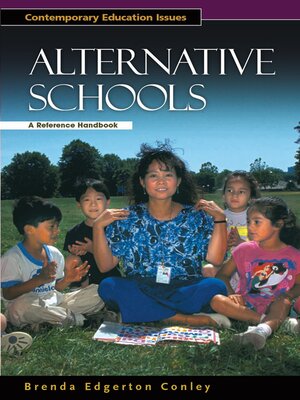Alternative Schools
ebook ∣ A Reference Handbook · Contemporary Education Issues
By Brenda Edgerton Conley

Sign up to save your library
With an OverDrive account, you can save your favorite libraries for at-a-glance information about availability. Find out more about OverDrive accounts.
Find this title in Libby, the library reading app by OverDrive.



Search for a digital library with this title
Title found at these libraries:
| Library Name | Distance |
|---|---|
| Loading... |
An examination of the growth and development of alternative schools in American society and their role in the public school environment.
In Alternative Schools: A Reference Handbook, educator Brenda Edgerton Conley surveys the emerging alternatives to our conventional educational system—a system that is not only costly, but ineffective for many children.
In a resource aimed at a broad audience—school administrators, politicians, and, most important, parents—Conley offers both a historical and a present-day perspective on alternative educational programs. What sets the alternative education movement apart, she argues, is its acknowledgment that we all learn differently. That knowledge has given rise to an explosion of exciting alternatives—from open schools to home schooling, from charter schools to church schools. These alternative schools are smaller and less bureaucratic, more responsive to the community, and more receptive to change.
In Alternative Schools: A Reference Handbook, educator Brenda Edgerton Conley surveys the emerging alternatives to our conventional educational system—a system that is not only costly, but ineffective for many children.
In a resource aimed at a broad audience—school administrators, politicians, and, most important, parents—Conley offers both a historical and a present-day perspective on alternative educational programs. What sets the alternative education movement apart, she argues, is its acknowledgment that we all learn differently. That knowledge has given rise to an explosion of exciting alternatives—from open schools to home schooling, from charter schools to church schools. These alternative schools are smaller and less bureaucratic, more responsive to the community, and more receptive to change.







